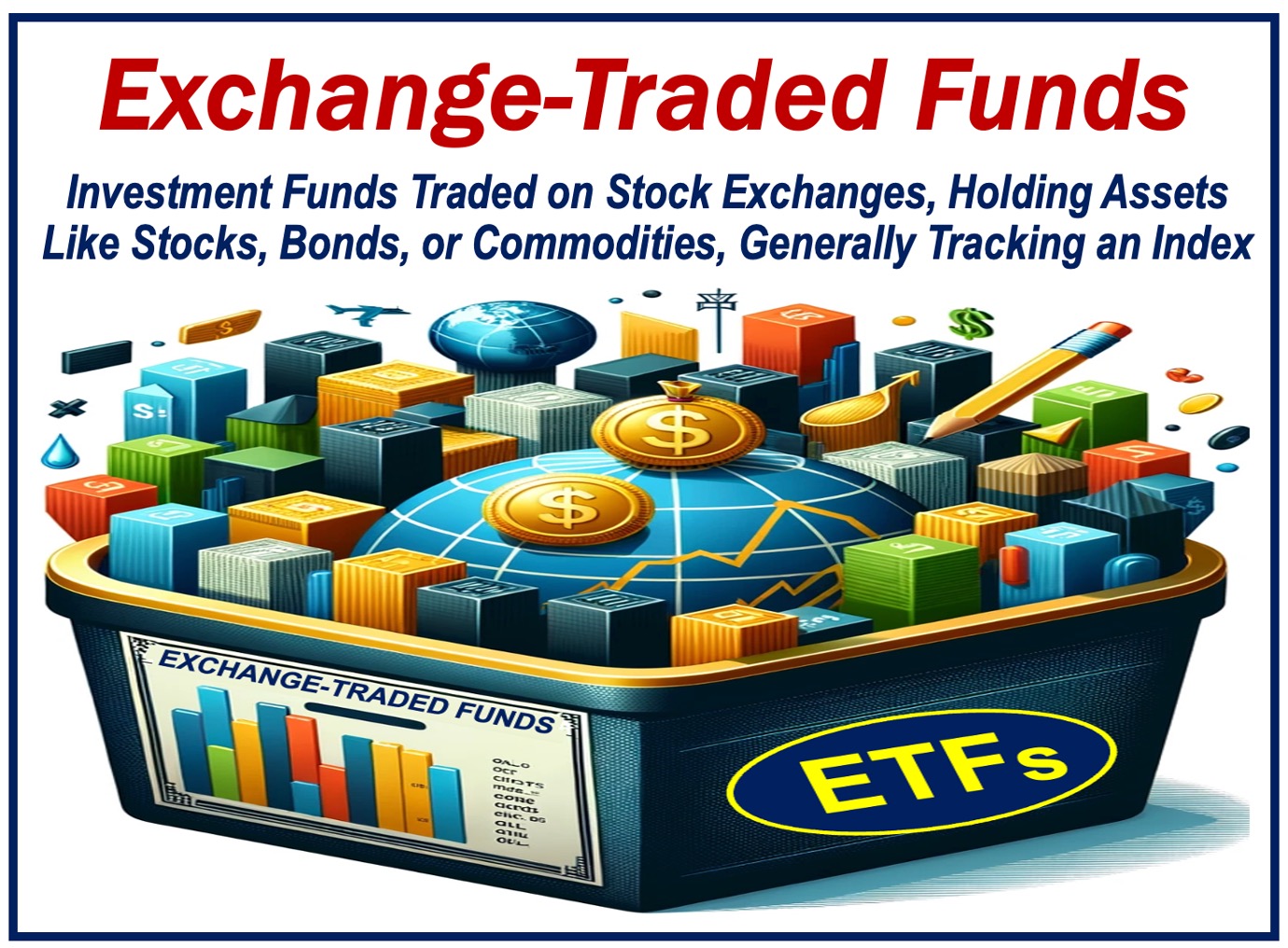An Exchange-Traded Fund (ETF) is an investment fund traded on stock exchanges, similar to stocks. It tracks an index, a commodity, bonds, or a portfolio of assets, similar to an index fund. Unlike mutual funds (UK: unit trusts), an ETF trades continuously at market prices.
The US Securities and Exchange Commission (SEC) says the following about ETFs:
“Exchange-traded funds (ETFs) are SEC-registered investment companies that offer investors a way to pool their money in a fund that invests in stocks, bonds, or other assets. In return, investors receive an interest in the fund. Most ETFs are professionally managed by SEC-registered investment advisers. ETFs are not mutual funds. But, they combine features of a mutual fund.”
Key Characteristics of Exchange-Traded Funds
There are several key features of ETFs, including:
-
Diversification
ETFs hold a diversified portfolio of assets, which reduces the risk compared to investing in individual stocks.
-
Liquidity
They are traded on stock exchanges and can be purchased and sold during trading hours.
-
Transparency
ETF holdings are typically disclosed on a daily basis, giving investors clarity.
Types of ETFs
There are several types of ETFs, including:
-
Stock ETFs
They track specific stock market indices or sectors.
-
Bond ETFs
This type invests in a variety of bonds.
-
Commodity ETFs
They track the prices of commodities such as gold, oil, silver, natural gas, copper, corn, wheat, and soybeans.
-
Thematic ETFs
These funds focus on certain themes or investment techniques, such as renewable energy or innovative technology.
Advantages
There are several advantages to investing in ETFs, such as:
-
Cost-Effective
There are usually lower fees than in actively managed funds.
-
Tax Efficiency
ETFs, most of the time, have lower capital gains tax rates than other investment funds.
-
Flexibility
You can sell and buy in the same way as stocks.
-
Compounding
Over time, regularly investing a certain amount each month can result in substantial compound growth.

Things to Consider
If you’re an investor, there are several things you should take into consideration, such:
-
Market Risk
Just like any other investment, ETFs are not risk-free.
-
Expense Ratio
Most of the time, the fees are low, but they can vary between ETFs.
-
Tracking Error
An ETF may diverge from the expected performance of its benchmark index or referenced assets.
The Future of Exchange-Traded Funds
The ETF market is set to grow, with more variety and smarter technology drawing in new investors and companies, broadening access to different sectors and investment styles.
Written by Nicolas Perez Diaz
